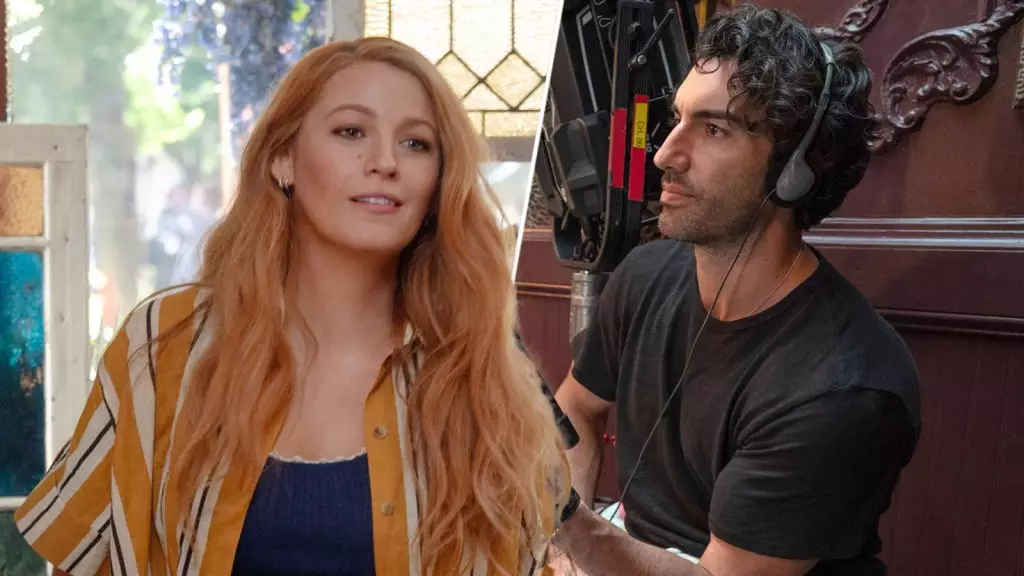In a prominent legal battle, actress Blake Lively has filed a lawsuit alleging sexual harassment against Justin Baldoni, her co-star and director in the film adaptation of Colleen Hoover’s bestselling novel, “It Ends With Us.” This dramatic turn of events not only shines a light on the complexities of workplace dynamics in the entertainment industry but also raises crucial discussions around power, accountability, and the repercussions of alleged misconduct.
Lively’s lawsuit, filed with the California Civil Rights Department, outlines immediate repercussions stemming from Baldoni’s alleged actions. One key consequence highlighted in the filed complaint was Lively’s withdrawal from hosting the premiere episode of the iconic “Saturday Night Live” Season 50. Initially set to take the stage, her decision to step back was rooted in the fear that any public appearances would compel her to divulge details about the alleged harassment she faced. This hesitancy reflects a broader concern for many victims of workplace misconduct: the anxiety of being publicly scrutinized and pressured to share traumatic experiences. Lively’s inability to confidently carry out her professional duties illuminates the broader implications of harassment not just on victims’ emotional well-being, but also on their careers and public personas.
The lawsuit further alleges that Baldoni, alongside his production company Wayfarer Studios, orchestrated a “sophisticated press and digital plan” aimed at discrediting Lively following her attempts to address the alleged misconduct. The claim raises unsettling questions regarding workplace retaliation and the lengths to which some individuals might go to protect their reputations. By presenting evidence of communications between Baldoni, his team, and a crisis PR advisor, the lawsuit suggests a calculated effort to undermine Lively’s credibility in the face of serious allegations. This scenario encapsulates a troubling reality where victims might find themselves battling not just the immediate fallout from harassment but also an uphill battle against broader, often systemic, mechanisms of retaliation.
The details outlined in the lawsuit serve as a stark reminder of the power imbalances often present in Hollywood. Lively, known for her work in “Gossip Girl” and other successful projects, has emerged as a significant figure in the industry. However, the account of Baldoni’s alleged behavior—including improvised scenes making her uncomfortable—reveals how even established stars may find themselves vulnerable in work environments that lack proper safeguards against harassment. The casual dismissal of workplace harassment—epitomized by Baldoni’s reported quip about missing an HR meeting—highlights an alarming normalization of inappropriate conduct that can profoundly affect individuals’ careers and mental health.
Following the allegations, Baldoni has faced significant professional consequences, including being dropped by his agency. This shift indicates the entertainment industry’s growing acknowledgment of the ramifications of misconduct allegations. The swift changes in Baldoni’s representation reflect a shifting landscape where accountability is becoming a priority, particularly as more victims come forward with their experiences. Additionally, support from fellow industry players, like author Colleen Hoover, who praised Lively for her integrity, underscores the importance of having advocates within such a high-pressure environment. Their backing validates the experiences of victims and sends a powerful message about solidarity against harassment.
Blake Lively’s lawsuit against Justin Baldoni is emblematic of larger issues plaguing the entertainment industry and workplaces beyond. As conversations surrounding harassment and workplace misconduct gain traction, it becomes increasingly crucial for organizations to foster environments where individuals feel safe to report misconduct without fear of retaliation. Lively’s situation serves as a call to action for systemic changes that protect not only the victims’ rights but also contribute to a more ethical and respectful industry landscape. The hope remains that by addressing these issues head-on, a more supportive and accountable framework will emerge, allowing talent and creativity to flourish without the shadow of misconduct.


Leave a Reply